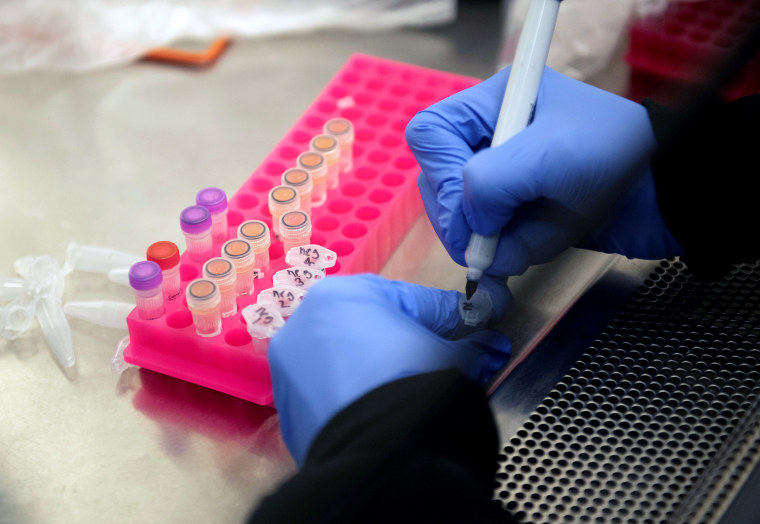At yesterday's White House press briefing, Donald Trump spent some time talking up possible vaccines and treatments for the coronavirus, but those expecting the president to reference hydroxychloroquine by name were left waiting. The Republican spent weeks effectively doing infomercials in support of the medication, but yesterday, it did not get another presidential plug.
It may not have been a simple oversight. As Politico reported yesterday, Team Trump's hydroxychloroquine hype appears to have taken a turn.
President Donald Trump and his allies in conservative media have subtly scaled down their hyping of hydroxychloroquine as a potential cure for the coronavirus, according to a POLITICO review of White House briefings and cable news coverage. Although Trump had repeatedly promoted the decades-old malaria drug since the early days of the disease's outbreak in the United States, his public statements regarding hydroxychloroquine have diminished significantly over the past week for reasons that remain unclear.
A Washington Post analysis added over the weekend, "Instead of banking on hydroxychloroquine, scooping up millions of doses of the medication for a sort of national uncontrolled experiment in its use, he could have reserved judgment, allowing trials to move forward while nonetheless making the medications available for use. He could have let the science lead and his own rhetoric follow. But that is not how Trump operates as president."
Quite right. The president told reporters he had "a feeling" untested medications might be effective in combating COVID-19, and his hunch was all of the evidence he needed.
It's probably too early in the process to conclude that hydroxychloroquine is ineffective in treating the coronavirus, and research will continue to bring answers into focus. That said, the fact that the White House and Fox News have apparently started moving away from their hype campaign suggests they're no longer confident that the medication is a silver bullet.
All of which puts Trump's public lobbying campaign in a new light. It was, after all, just a few weeks ago that Politico reported that some health officials are "being pulled away from other potential projects to address the president's hunch." The article quoted an HHS official who lamented the "time and energy being soaked up by a potential wild-goose chase."
Nevertheless, a week later, the president went so far as to publicly encourage Americans to start taking the medication -- "Take it," Trump said, adding, "I really think they should take it" -- adding that he personally was prepared to start himself on the drug.
A day later, Politico published a related report, noting that career health officials had raised behind-the-scenes warnings about hydroxychloroquine, but they'd been "warned not to publicly speak out and potentially contradict Trump."
If the White House and its allies are now less confident in their hype, they have some explaining to do about why Trump became such an enthusiastic cheerleader for an unproven treatment in the first place.
Update: The Associated Press reported this morning, "A malaria drug widely touted by President Donald Trump for treating the new coronavirus showed no benefit in a large analysis of its use in U.S. veterans hospitals. There were more deaths among those given hydroxychloroquine versus standard care, researchers reported. The nationwide study was not a rigorous experiment. But with 368 patients, it’s the largest look so far of hydroxychloroquine with or without the antibiotic azithromycin for COVID-19, which has killed more than 171,000 people as of Tuesday."

